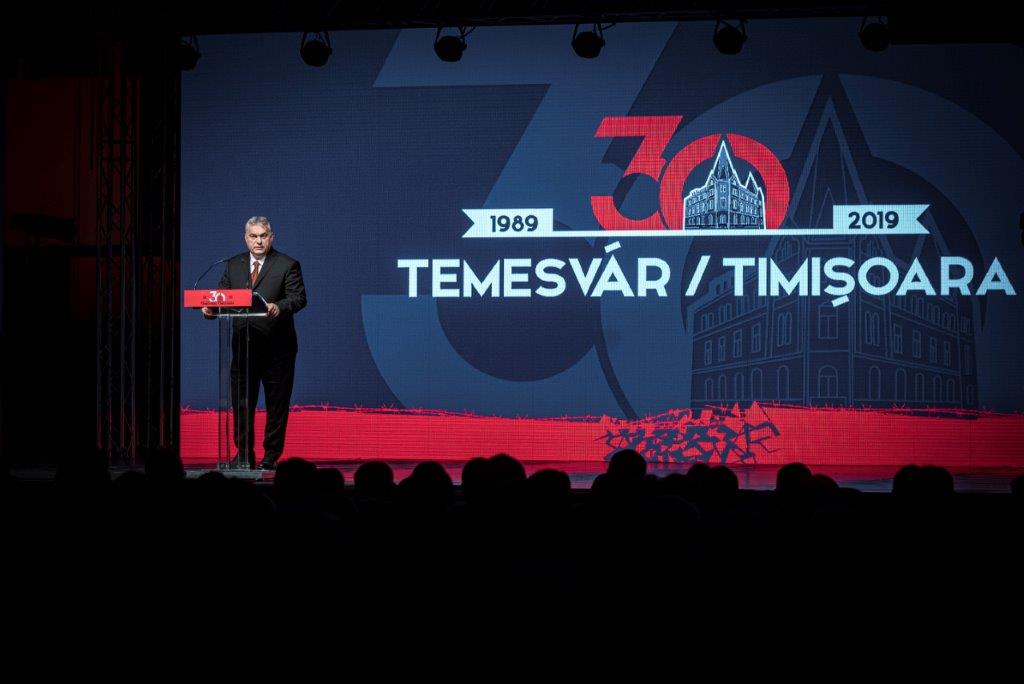Hungary is ready to build a new Central Europe with its neighbours, including Romania, Prime Minister Viktor Orbán announced at a gala evening on the occasion of the 30th anniversary of the outbreak of the Timisoara Revolution on 14 December in the Timisoara Regional Chamber of Commerce.
The Prime Minister's goal is “to make Central Europe one of the most successful and competitive areas in the world, with cities linked by highways and high-speed railways, in which there is full employment, to which our workers will return, and where one day we will find it difficult to provide jobs for workers coming here from Western Europe.”
Hungary wants to be among the European countries where it is best to live and work, Hungary wants to produce goods with the latest technologies in the world economy, it wants to benefit from the best and cleanest natural environment, and it wants to remain one of the world’s safest countries - PM Viktor Orbán said, adding that this is easier to achieve with neighbouring states than on its own. He said he saw a great chance that Romanians and Hungarians could have common goals in the future.
About the events in Timisoara 30 years ago, Viktor Orbán explained that the citizens of Timisoara and Romania have made it clear to the world that Central Europeans will, if necessary, at the cost of their lives, take back their freedom. It turned out in 1989 that it was even possible for Romanians and Hungarians to join forces for freedom, he added, pointing out that in 1956, after Poles and Hungarians in Romania, Romanians were the largest number who stood up for the revolutionaries of 56.
For forty years politicians around the world believed that, through compromise, the taming – or even improvement – of communism was possible. Those in Romania showed that, even through compromise, the improvement of communism was not possible. The peoples of Central Europe always knew that freedom would never be gifted to us by the great powers. Had we waited for help from the West, we would still be living under the occupation of Soviet troops, we would still be members of the Warsaw Pact, and our future would still be decided at Communist Party congresses. But we wanted to live in freedom, we committed ourselves to the struggle, we accepted the risks, and our heroes shed blood for it.
In honour of László Tőkés, Viktor Orbán said: We are also here today to pay tribute to Bishop László Tőkés, because we feel we owe it to ourselves to say and honour the truth, and we owe it to actors like László Tőkés. We can say with all certainty that if a young Calvinist pastor hadn’t had the courage to confront those in power, we would have had to wait a very long time for the spark that blew the entire system sky high. All hail László Tőkés!


